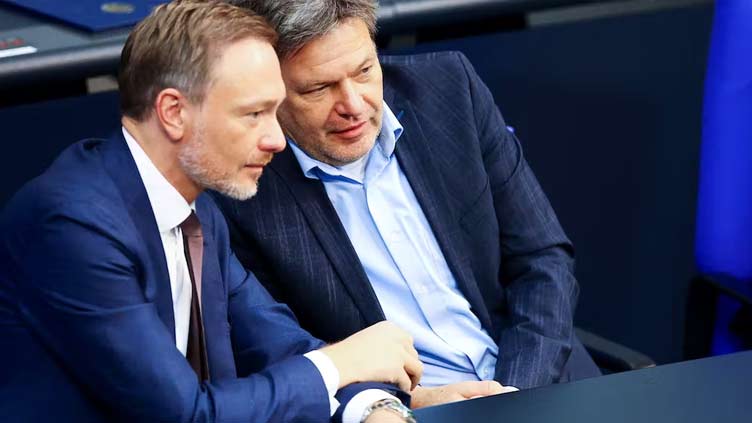Top German ministers spar over budget in sign of coalition tensions

World
The three parties have carefully tried to play down differences.
BERLIN (Reuters) - German Finance Minister Christian Lindner and Vice-Chancellor Robert Habeck have clashed over plans for next year's budget, according to an exchange of letters seen by Reuters that underscores growing tensions in the three-way coalition.
Social Democrat Chancellor Olaf Scholz's government with the Greens and Free Democrats (FDP) has come under strain over some aspects of Germany's response to the Ukraine war, and all three parties suffered losses in a state election on Sunday.
Reflecting concerns among some Greens that there will be insufficient funds for some of their planned projects, especially as the government is committed to strict debt rules, Economy Minister Habeck took issue with Lindner's proposals.
He urged him not to unilaterally prioritise spending in some areas, including on the armed forces and tax reductions for the gastronomy sector, saying his party could not accept the budget plans.
"We suggest that we discuss how to improve revenues, push ahead with the reduction of environmentally damaging subsidies," wrote Habeck in a letter dated Feb. 14 to pro-business FDP leader Lindner.
In his reply, dated Feb. 15, Lindner rebuffed Habeck in blunt language.
"Tax increases or other additional structural burdens for citizens or the economy are excluded from the coalition agreement," he wrote.
"Policy projects in the coalition deal, however, are constitutionally subordinate to complying with the Basic Law," he added, stressing the need to adhere to budget discipline.
During their time in office so far - just over a year - the three parties have carefully tried to play down differences, such as whether to extend the lives of nuclear plants due to fears of an energy crisis and whether to send Leopard battle tanks to Ukraine.

